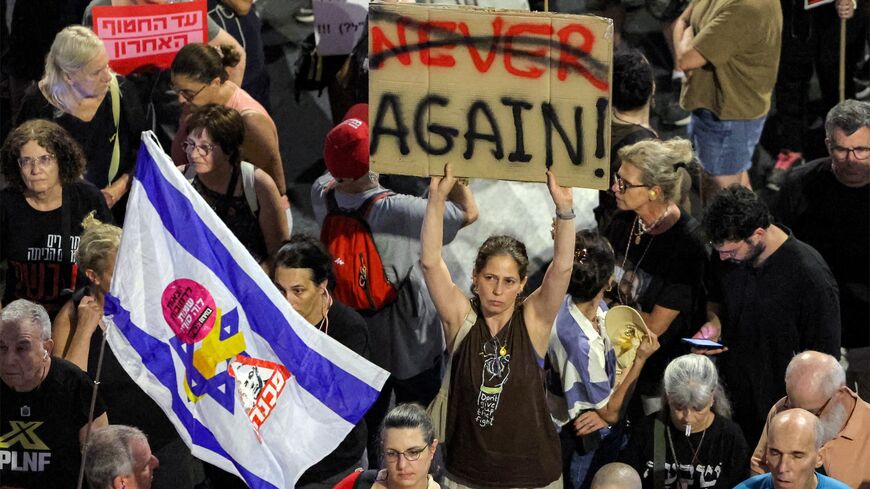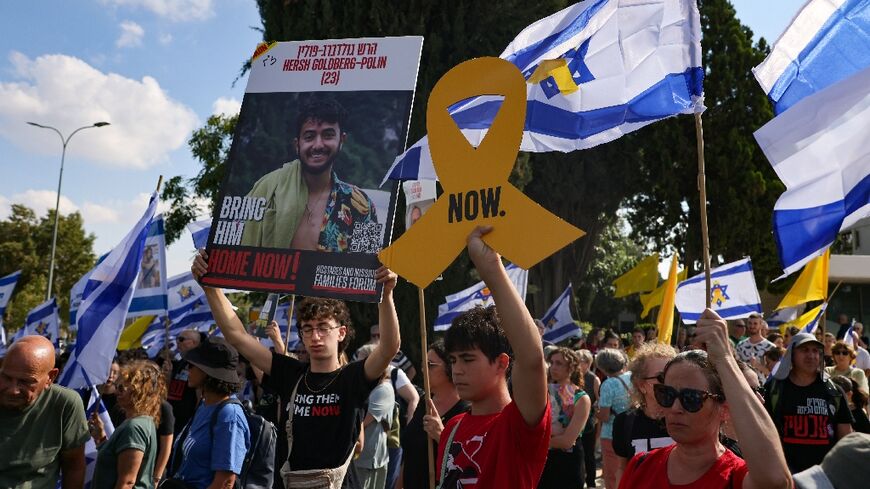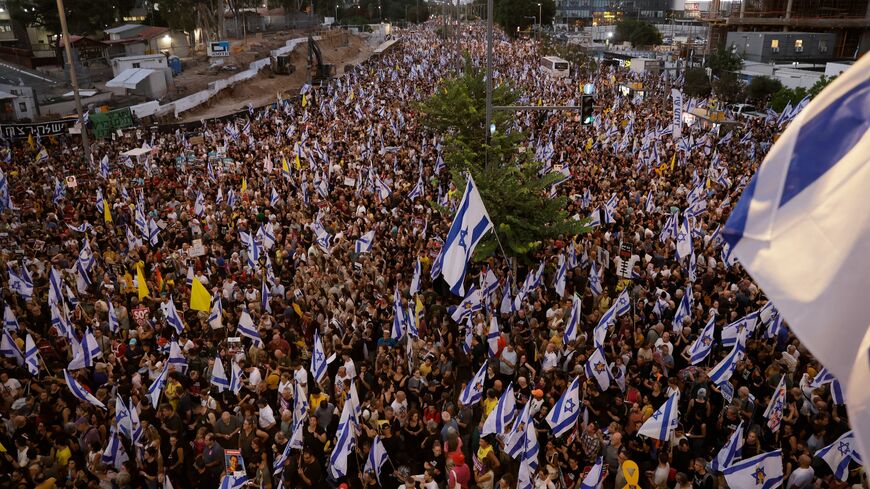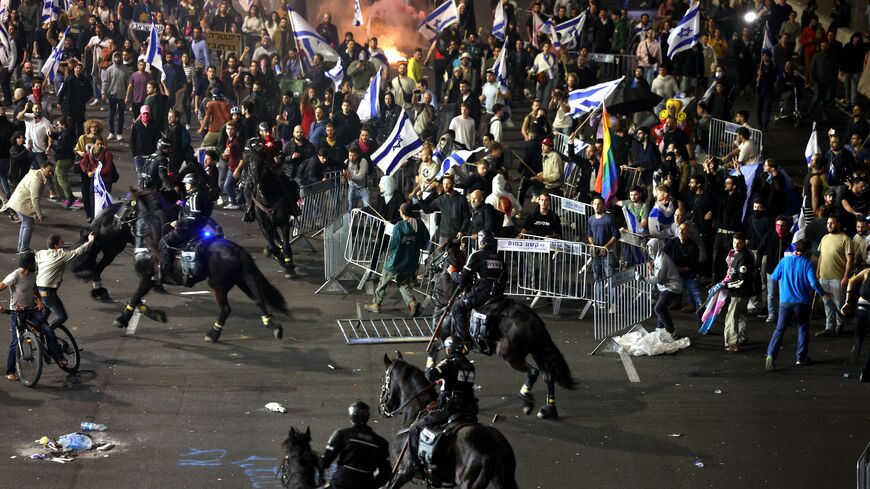General strike in Israel as thousands protest for Gaza hostage deal
Labor unions across Israel announced a general strike Monday, to enable their people to demonstrate against the government, in calls to conclude a deal to bring back the hostages.
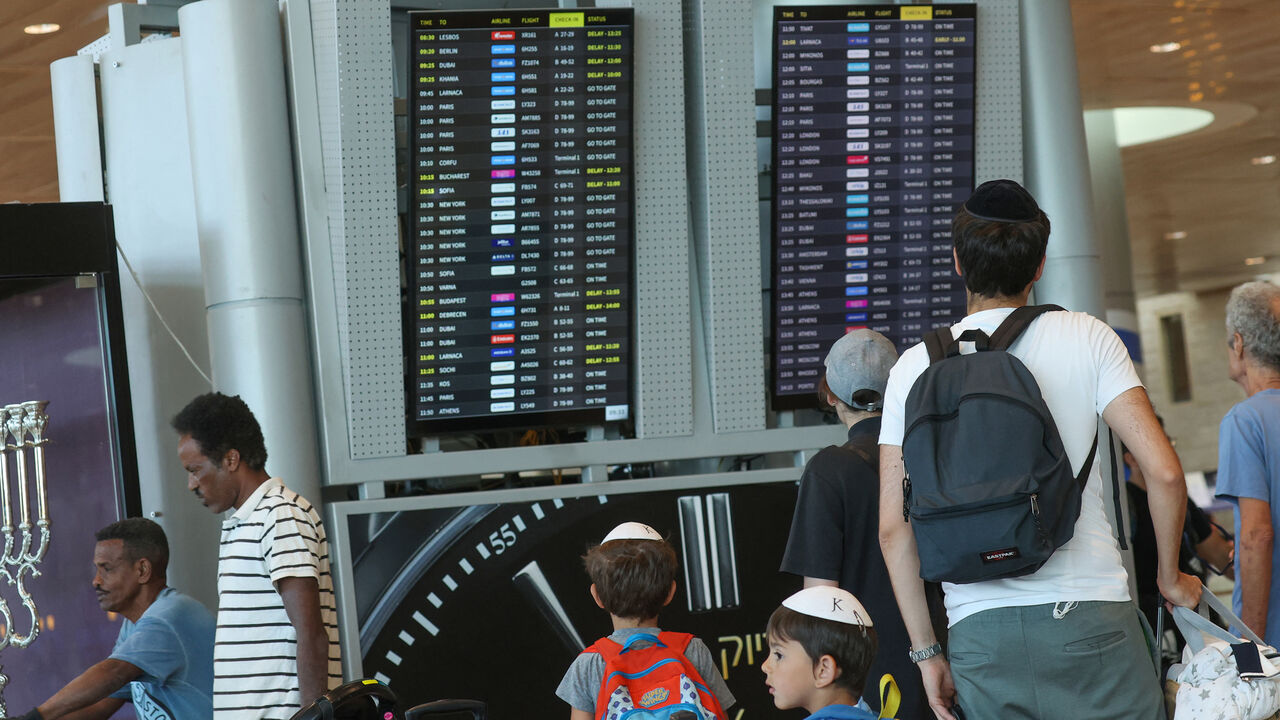
Ben-Gurion Airport, public services, universities, kindergartens, tech firms and other businesses across Israel went on strike Monday morning as thousands of people rallied in the streets, calling on the government to conclude a deal with Hamas that would see the release of the hostages and a cease-fire in the Gaza Strip.
The Israeli labor court ruled that the strike should end Monday afternoon, saying that "the strike is political. There is no relation between the killing of the hostages and Israel's economy." However, demonstrations continued across Israel.
The general strike was announced as the United States, Qatar and Egypt were drawing a final proposal for such a deal, The Washington Post reported Monday. The White House did not confirm that a new proposal was about to be presented to Israel and Hamas, but did say that President Joe Biden and Vice President Kamala Harris will meet Monday with the American negotiators in another push for an agreement.
Referring to the bodies of the six hostages retrieved by the Israeli military on Saturday from southern Gaza, the White House said that Biden's schedule had changed, so "with the US hostage deal negotiating team following the murder of American citizen Hersh Goldberg-Polin and five other hostages by Hamas on Saturday and discuss efforts to drive towards a deal that secures the release of the remaining hostages."
Israel’s largest labor union calls for strikes
Monday’s strike was called by the Histadrut Labor Federation, which represents most public sector workers. The decision to call the strike was made after the Israeli military recovered the bodies of the six hostages and following the announcement by the military over the weekend that the six were shot and killed by the captors only one or two days before the rescue operation.
The Histadrut decided to call a strike to enable people to join the rallies organized across the country calling for a hostage deal now. The demonstrators are blaming Prime Minister Benjamin Netanyahu and his far-right coalition partners for insisting on several demands in talks with Hamas, thus blocking the prospects of reaching a deal.
The general strike includes Ben-Gurion Airport, which is functioning partially, with some flights canceled. Hospitals are functioning at reduced capacity, similar to weekend mode, Haaretz reported. Israel’s ports in Ashdod, Haifa and Eilat, the post offices and most of the public and private universities are striking. Kindergartens are striking, while schools are open only until midday. Most of the banks have also announced they will be closed, though online services will be available. Several municipalities — including Jerusalem, Tel Aviv, Haifa, Giv’atayim and Kfar Saba — also joined the strike. The ensemble of public companies, such as local sewage authorities, urban planning committees, immigration authorities, customs and Jewish and Druze state religious services are closed for the day.
Roads and junctions blocked
Demonstrators are protesting across Israel in city centers and highway junctions, local media reported. Tel Aviv Ayalon junction was blocked by protesters for a few hours Monday morning before police dispersed them. Demonstrators also blocked for short whiles the Ra’anana junction and the Haifa Matam junction. Hundreds of people have been protesting in front of the Defense Ministry headquarters in Tel Aviv since Monday morning. Similar rallies are held in Netanya, Yizre’el Valley and other locations.
On Oct. 7, Hamas militants stormed into southern Israel, killing nearly 1,200 and abducting another 240 people. Israel's response has been to go to war with Hamas in Gaza, which has seen more than 40,000 people die in the enclave.

